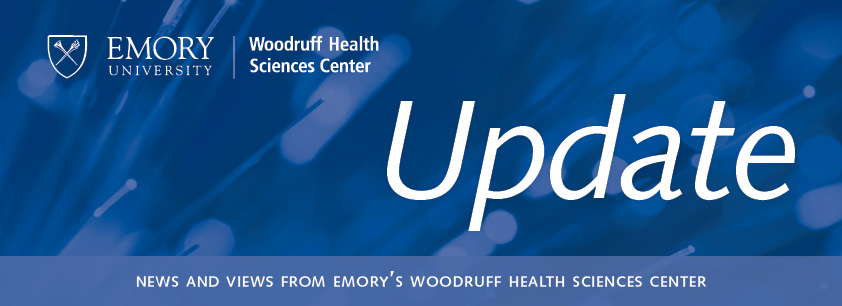NIH renews five-year grant for ACTSI
 |
| Clinicians in the phase 1 clinical trials unit at Winship use a laboratory information management system established by ACTSI to barcode, track, and manage bio-specimens via a common infrastructure and bio-bank. |
The NIH has awarded nearly $31 million over five years to renew the Atlanta Clinical & Translational Science Institute (ACTSI). Led by Emory, the ACTSI has two primary academic partners: Morehouse School of Medicine and Georgia Institute of Technology. It was originally established in 2007 through an initial five-year NIH grant of nearly $31 million.
Examples of some key accomplishments of the ACTSI over its first five years include the following:
• Establishment of a city-wide home for clinical and translational research with a multi-site clinical research network.
• Establishment of an integrated education and training program in clinical and translational research and development of new programs in biomedical engineering research design, research ethics, and community-based participatory research.
• Development of a new city-wide infrastructure and research home for expanded pediatric-focused research with Children’s Healthcare of Atlanta.
• Development of biomedical informatics resources for ACTSI investigators, including support for patient-related biomedical research, educational offerings, and services to link and analyze large-scale data projects across ACTSI institutions.
• Support of programs and facilities, such as the Georgia Research Alliance (GRA) Genomics Core, Center for Systems Imaging, Center for Health Discovery and Well Being, Emory Personalized Immunotherapy Center, Emory Health Innovation Program, Clinical and Translational Research Program for Pediatrics, and Saint Joseph’s Translational Research Institute.
• Creation of an academic-industry annual forum with Georgia Bio and a partnership with the GRA to accelerate emerging technologies and discoveries.
• Development of new website tools and technologies designed to integrate research partners.
• Development of a growing partnership with the Winship Cancer Institute and its phase 1 clinical trials unit. Read more.
NCI renews Winship's designation
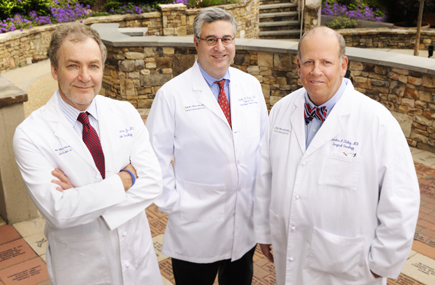 |
| Winship leaders Walter Curran, Fadlo Khuri, and Charles Staley |
The National Cancer Institute (NCI) has renewed Winship Cancer Institute's NCI cancer center designation status and has awarded Winship $7.5 million over five years to accompany the designation.
A panel of 23 NCI-appointed cancer research experts reviewed Winship’s application for this renewal and scored Winship at the "outstanding" level. Only 57 other centers nationwide that provide care to adult cancer patients hold this NCI cancer center designation, and Winship is the first and only NCI-designated cancer center in Georgia.
Some of the reasons for the "outstanding" rating by NCI include significant advances in lung cancer research at Winship, a world-class multiple myeloma program, the Southeast's largest head and neck cancer research program, and a broad portfolio of clinical trials—Winship enrolled more than 700 patients in therapeutic clinical trials in 2011.
"The designation is not about bragging rights," says Walter Curran, Winship executive director. "It is about facilitating our ability to understand cancer and work cooperatively with other NCI-designated centers in conducting research." Overall NCI funding of research grants to Winship investigators has tripled in the past 10 years, going from $9.49 million in 2001 to $29.5 million in 2011.
This NCI renewal comes as Winship celebrates its 75th anniversary. It was established in 1937 with a $50,000 gift from Robert W. (Winship) Woodruff and is named for Woodruff's maternal grandfather.
Read more about the designation, including reactions from two of Georgia's congressional representatives, the governor, and Winship patients.
CFAR renewed at $9 million
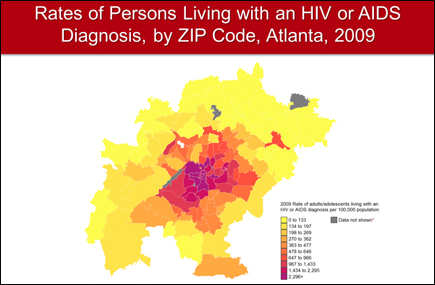 |
| Recent CFAR accomplishments include launch of AIDSVu, an online tool providing data on HIV cases throughout the country. |
Emory's Center for AIDS Research (CFAR) has received more than $9 million in a five-year grant that includes renewal of its designation as an NIH CFAR site. One of 21 such centers throughout the country, the Emory CFAR received its original designation in 1998. It helps fund the research of some 245 faculty and fellows and is co-directed by James Curran, dean of the Rollins School of Public Health; Carlos del Rio, chair of the Hubert Department of Global Health; and Eric Hunter, Georgia Research Alliance Eminent Scholar.
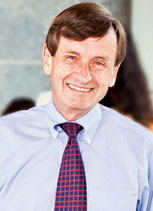 |
|
| James Curran |
|
CFAR scientists have produced groundbreaking research, including invention of HIV/AIDS drugs taken by more than 94% of U.S. patients on therapy and by thousands more around the globe.
An HIV vaccine first developed by CFAR scientists at the Emory Vaccine Center and Yerkes National Primate Research Center and licensed to GeoVax is in phase 2 human clinical trials. It is one of only five HIV vaccine candidates to progress to that stage of development.
The Ponce de Leon Health Center HIV/AIDS Clinic, directed by CFAR faculty physicians, has been one of the top three HIV clinics in the nation for the past 10 years, caring for more than 5,000 persons annually.
The Atlanta VAMC houses a clinical HIV program staffed by CFAR physicians that follows 1,307 veterans—the largest population of HIV-infected patients within the national VA health system. The Atlanta VAMC HIV program also maintains the oldest and most comprehensive research database of veterans with HIV/AIDS in the country, with records of more than 3,500 patients spanning 28 years.
CFAR's Hope Clinic is a national leader in clinical trials for HIV vaccines and is a top-enrolling site for the NIH HIV Vaccine Trials Network.
In addition to the NIH, the Emory CFAR is supported by the Georgia Research Alliance, Atlanta Clinical and Translational Science Institute, Children's Healthcare of Atlanta, and multiple units in the Woodruff Health Sciences Center. Read more.
Klugman helps develop first-ever index for drug resistance
For non-experts, reading antimicrobial resistance data is confusing because there are so many antibiotics. If effectiveness of one antibiotic increases or decreases and the rest stay the same, have things gotten better or worse? Having a single number would make drug resistance easier to explain to policy-makers, says Keith Klugman, William H. Foege Chair in Global Health and a leading expert on antibiotic resistance around the world.
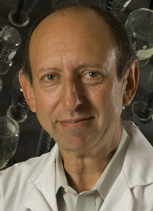 |
|
| Keith Klugman |
|
"Economists do this all the time," he says. "The end result is something that is easy to understand, even though it may be complex to calculate."
Klugman has been developing a drug-resistance index in cooperation with economist Ramanan Laxminarayan, director of the Center for Disease Dynamics, Economics & Policy in Washington, D.C. Laxminarayan had the initial idea and came to Klugman for scientific advice.
The index combines a "basket" of resistance data for different drugs, similar to how groceries and other household items make up the cost-of-living index. These numbers are weighted according to the amount of each that is used. If a microbe develops resistance to a drug that is used relatively little, then the index will go up only slightly. If resistance occurs against a drug prescribed widely, the index will increase more.
"What lab monitoring picks up doesn't map exactly to clinical treatment failures," Klugman says. "Resistance to a particular antibiotic matters less when doctors have other choices, and more when they don't."
The goal is to assign one number to every microbe in every country and thus make it easier to emphasize the importance of smart drug policies and compare resistance in different states or countries. Read more about U.S. antibiotic use, and view an interactive map of antibiotic resistance data.—Quinn Eastman
EHC's new strategic plan: Achieving balance to create value in a changing world
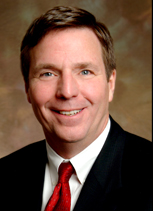 |
|
| EHC CEO John Fox |
|
Taking stock—Emory Healthcare (EHC) is in the process of drafting a new strategic plan for the next three years. As we conclude our current five-year plan, it's important to understand what we have accomplished over the past five years to create a strong foundation for the future. Some examples include the following:
• As a result of our extensive focus on quality, Emory University Hospital (EUH) and EUH Midtown were ranked 10th and 11th, respectively, by the University HealthSystem Consortium in 2011.
• We invested significant resources to move to a fully integrated electronic medical record system.
• We opened Emory University Orthopaedics & Spine Hospital, took full ownership of Emory Johns Creek Hospital, and developed a joint operating company with Saint Joseph’s Hospital of Atlanta. We also expanded our physician presence through Emory Specialty Associates and a new clinically integrated network.
• We continued to advance our academic and research missions.
Planning process—As we formed the EHC FY13–FY15 Strategic Plan, we sought input from key stakeholder groups across Emory—EHC administration (both hospital and clinic), physicians, nursing, patient and family advisers, employees, and board members. We received feedback through a variety of methods—feedback sessions, retreats, and surveys. All employees were invited to participate in two different surveys, and we held two physician retreats. The input received from the diverse groups has been invaluable to development of the plan.
Planning context—We are developing the plan in the context of environmental challenges. Baby boomers are shifting rapidly into Medicare and are driving up costs. The health care market is consolidating rapidly, resulting in intense competition for tertiary and quaternary care. Academic medical centers face significant funding pressures for training and research. Care delivery is shifting away from higher- to lower-cost settings. The future of the Affordable Care Act (ACA) is still unclear, even after the U.S. Supreme Court upheld most of the law. ACA could still be repealed, depending on the outcome of the elections. In addition, Georgia will determine whether to expand Medicaid coverage as defined in ACA. Despite these uncertainties, government and private payers will demand value and accountability for delivering quality cost-effectively. The U.S. needs and will get a new, sustainable system of delivering care at a lower cost.
Draft of the plan—The overall theme of the new plan is "Creating value for our patients and families." Value is impacted by five proposed key strategic themes and goals:
• Clinical quality: Fulfill our Quality Promise across the continuum of care cost-effectively.
• Patient and family experience: Significantly improve the patient and family experience with access to the right care.
• Commitment to those who serve: Achieve top physician and employee engagement by living the Care Transformation Model.
• Discovery and innovation: Conduct research and use our strength in education to develop new methods of delivering care.
• Financial strength: Maintain positive financial performance by improving efficiencies and reducing costs per unit of service.
As part of our plan, we are preparing for the future in several important ways:
• We will maintain strong focus on quality and patient experience.
• We will expand patient and provider access, both electronically and geographically.
• We will change our cost structure through reducing waste and variation of care, while also achieving economies of scale.
• We will transition our care delivery models and coordination of care to address a patient's total cost of health care across the continuum.
• We will incorporate our tripartite mission as an academic medical center through research and education, which differentiates us in the market.
• We recognize that none of our strategies will be accomplished without strong alignment with our physicians and employees.
The EHC FY13–FY15 Strategic Plan goes to the boards for approval later this month. Once we have a final approved plan, we will provide more specifics about how it will be implemented. For more information about this plan, please contact Lynda Barrett, 404-778-3139, lynda.barrett@emoryhealthcare.org.
Mobilizing ties in AIDS research
One in a series of profiles of people in the Woodruff Health Sciences Center
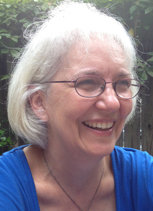 | |
| Kimberley Hagen |
|
Kimberley (Kimbi) Sessions Hagen has gotten in on the ground floor of Atlanta’s response to HIV/AIDS not once but three times.
The first time was just four years into the epidemic, when she began volunteering in 1985 as a community educator and "buddy" at AID Atlanta, one of the nation's first AIDS service organizations.
Second was in 1988, when Kathleen Miner hired her to be a medical educator for what is now the Southeast AIDS Training and Education Center (SEATEC) after Miner, an associate dean in Rollins School of Public Health (RSPH), was awarded Emory’s first AIDS-specific grant. "In those days almost all practicing clinicians had finished training before the advent of AIDS. My job was to teach health care students and professionals in a four state area how to provide care for patients with HIV while protecting themselves physically and emotionally," says Hagen.
She quickly discovered that this was work she loved and subsequently spent seven years commuting to University of Georgia to complete first a master's and then a doctorate in medical education while working full time at the medical school.
Hagen's third ground-floor opportunity in AIDS came in 1998, when RSPH Dean James Curran recruited her to the newly funded Center for AIDS Research (CFAR). (See article above.)
Today, in her role as director of the CFAR "LINCS" initiative, Hagen promotes interdisciplinary interactions across the university. She's probably best known as the "goddess" of a 2,000-member Vaccine Dinner Club (VDC) whose motto is "Hot Food, Cool Science...Count Me In!" Preparing to start its 15th year, the VDC, with Hagen and colleague Jane Lawson at the helm, meets monthly. A typical evening has 300 to 500 scientists, students, and others from all over the Southeast meeting to network, nosh, and hear presentations on a wide variety of vaccine-related topics.
Another interdisciplinary initiative she organizes, the CFAR Network Pizza Party (motto: "Better Science Through Pizza"), pairs talks by internationally known speakers on HIV pathogenesis, prevention, clinical care, and policy with related talks by Emory-based researchers. Entering its third year, the Pizza Party is already drawing 100 to 200 participants monthly.
Hagen is also associate director of the CFAR Developmental Core, an initiative designed to grow the next generation of HIV/AIDS researchers. Along with core directors Dennis Liotta and Ralph DiClemente, Hagen arranges mentorships for young scientists, directs a seed grant program, and offers tutorials in grant writing, public speaking, and poster design. She also works on contract with the CDC to provide workforce development training for HIV/AIDS medical staff in Africa and is on the faculty of RSPH's Department of Behavioral Sciences and Health Education. Beginning in spring 2013 Hagen hopes to offer a university-wide course on HIV/AIDS modeled on the "Viral Cultures" university class that she co-convened this year.
Hagen is the chief writer for CFAR, preparing grants, informational materials, and the widely read Network News, which bears the tagline: "Delivered electronically to your inbox every Monday. Except when it isn't."
As CFAR assistant director, Hagen reports directly to Curran, CFAR principal investigator, and is part of its leadership team, as are administrator Shelle Bryant and project coordinator Judy Catasein.
What does Hagen like best about her 24 years and counting at the WHSC? "Being able to interact on a daily basis with people who are passionately engaged with the most complex and socially stigmatized pandemic of our age. Between SEATEC and CFAR, I truly have had the best jobs on campus!"
| |
 |
|
From the Executive VP
Search for new medical dean expected to culminate soon
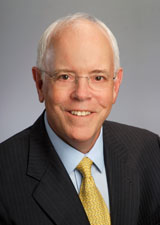 | |
| Wright Caughman |
|
As promised in previous editions of Health Sciences Update, I'm pleased to keep you current on our progress in identifying School of Medicine Dean Tom Lawley's successor. The outstanding search committee, led so effectively by Chair Jim Curran and Co-chair Doug Ivester, has made impressive strides in recent months.
An incredibly strong group of nearly 50 candidates from across the nation have expressed interest in the position. Of this group, the committee has met and interviewed selected candidates and is in discussions with me to select the three to four most qualified candidates for a second round of interviews this month, with the goal of recruiting the new dean soon thereafter.
I will continue to keep you updated as the search process is completed. Thanks and congratulations to the entire search committee for spearheading this important search.
Please direct questions and comments to evphafeedback@emory.edu.
In brief
Nursing receives $4.5 million for work in Ethiopia
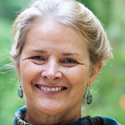 |
|
| Lynn Sibley |
|
The Nell Hodgson Woodruff School of Nursing has received $4.5 million from the Micronutrient Initiative for a four-year project designed to improve maternal and newborn survival rates in rural Ethiopia. Led by principal investigator and nursing faculty member Lynn Sibley, participants will work closely with Ethiopian health agencies to adapt a community-oriented strategy to improve maternal and newborn health in the Afar region of Ethiopia, and they will position the approach to be adopted throughout the country. Read more.
Top hospitals/top doctors in Atlanta
U.S. News & World Report has named Emory University Hospital (EUH) the top hospital in both metro Atlanta and in Georgia in its 2012 guide to "America's Best Hospitals." Wesley Woods Hospital ranked second in Atlanta and third in Georgia, EUH Midtown ranked fourth in Atlanta and fifth in Georgia, and Saint Joseph's Hospital ranked seventh in Atlanta and 12th in Georgia. Nine top hospitals were named out of all 60 hospitals in metro Atlanta. This year's evaluation included 5,000 hospitals nationally, of which 152 were selected for inclusion in the list of top hospitals. EUH also ranked nationally in cancer, cardiology/heart surgery, geriatrics, neurology/neurosurgery, and psychiatry. Read more details about the rankings.
Meanwhile, nearly half (49.5%) of the 315 physicians recognized as "top doctors" in the July issue of Atlanta Magazine practice at an Emory facility.
$5 million grant will focus on heart risk biomarkers
 |
|
| Dean Jones |
|
Researchers in the medical school have received a $5 million, five-year NIH grant
to identify new biomarkers for heart disease. "We can see that individuals have distinct metabolic profiles, with patterns that reflect genetics, diet, behavior, and environment," says principal investigator Dean Jones, director of the Emory Clinical Biomarkers Laboratory. "Our proposal is to tap this vast amount of information and harness it to help doctors and patients make everyday decisions in cardiovascular medicine."
Jones and colleagues plan to use metabolomics to sort through thousands of substances in the blood via mass spectrometry to find those whose levels match established measures of blood vessel function and coronary artery disease. Read more.
Patient-centered outcomes grant to study hospital admissions
 |
|
| Edmund Becker |
|
Health policy expert Edmund Becker (Rollins School of Public Health) will lead a two-year research project funded by a $600,000 grant from the Patient-Centered Outcomes Research Institute. "Our study will analyze hospital patient admissions in 14 states in 2009 to 2010 for heart attacks, congestive heart failure, and pneumonia and evaluate how patient-centered care and aspects of the hospital's structure and processes impact patient outcomes and satisfaction. In particular, we will focus on how variations in patient's race and ethnicity, payer mix, age, gender, and chronic conditions influence patient-centered assessments," says Becker. Read more.
Emory well represented at international AIDS conference
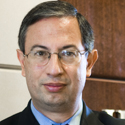 |
|
| Carlos del Rio |
|
The Emory Center for AIDS Research (CFAR) figured prominently at this summer's XIX International AIDS Conference, held last month in Washington, D.C., the conference's first U.S. venue in 22 years. Faculty and students participated in more than 100 talks and presentations, and Emory faculty experts were quoted in stories from Reuters, USA Today, CNN, MSNBC, Bloomberg Business Week, NPR, and HealthDay News. Read more about Emory contributions to the conference and news coverage.
Palliative care grant studies impact of chaplain support
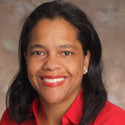 |
|
| Tammie Quest |
|
The Palliative Care Center received a $250,000 grant from the HealthCare Chaplaincy-Templeton Foundation to study the impact of hospital-based chaplain support on decision-making during serious illness. This was one of eight grants funded out of 70 applications from the U.S. and Canada. Palliative care physician Tammie Quest will be principal investigator on this grant, which also involves pastoral care, the nursing school, geriatrics, and the department of sociology in Emory College. Based at Emory University Hospital Midtown, the project seeks enhanced understanding of the role of the chaplain in spiritual-based end-of-life decision-making in African Americans.
New anthrax vaccine regimen receives FDA approval
The Emory Vaccine Center was a primary participant in a CDC program to develop an improved anthrax vaccine regimen that recently received FDA approval. BioThrax, the only anthrax vaccine licensed in the U.S., can now be administered in fewer doses, with recipients considered protected a full year sooner than specified with the previous regimen. The vaccine is used primarily for protecting military personnel deployed to high-risk areas. Read more about the vaccine and the new regimen.
Hospitals reaccredited as chest pain centers
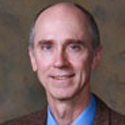 |
|
| Michael Ross |
|
Emory University Hospital (EUH) and EUH Midtown have both been re-accredited as Chest Pain Centers by the Society of Chest Pain Centers. The designation lasts for three years.
Three years ago, EUH and EUHM were the first hospitals in the metro area to achieve accreditation at the highest level, according to Michael Ross, medical director of the EUH Chest Pain Center and immediate past president of the Society of Chest Pain Centers. "This re-accreditation is really the culmination of three years of hard work and innovation to keep Emory at the forefront of heart attack care—locally and internationally,"
he says. Read more.
EUH Express Care Clinic has relocated
The Emory University Hospital location of the Emory's free Express Care Clinic changed this summer. The clinic is easier to find at its new location on the second-floor D-wing.
The EUH Midtown location remains the same. The clinic offers free care for common illnesses: colds, flu, sinus problems, eye infections, ear pain, acute muscle pain, and the like. To schedule an appointment, call 404-686-8587 (EUH) or 404-686-2352 (EUH Midtown).
Notable
 |
|
| Greg Esper |
|
Greg Esper (neurology) is Emory Healthcare's director of new care models, a new position in the EHC Office of Quality & Risk in which he will report to Chief Quality Officer Bill Bornstein and Emory Clinic CEO Doug Morris. Esper will drive development of care models to improve quality, decrease costs, and position EHC for financial success in the value-based reimbursement models of the future.
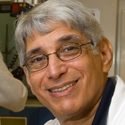 |
|
| Mark Goodman |
|
Mark Goodman was honored at the annual meeting of the Society of Nuclear Medicine with the Aebersold Award for his work in developing novel imaging biomarkers. Read more.
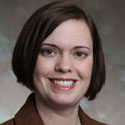 |
|
| Heather Hamby |
|
Heather Hamby has been named vice chair of administration and executive administrator for the Department of Medicine. She has served in this role in an interim capacity since June. She will continue to serve concurrently as executive administrator for the Department of Surgery until that position has been filled. A search for the surgery position is under way.
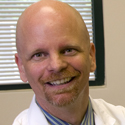 |
|
| Ted Johnson |
|
Ted Johnson is director of the newly merged Division of General Medicine and Geriatrics in the Department of Medicine. Outpatient programs in these two overlapping specialties merged to form primary care medicine in The Emory Clinic six years ago. Read more.
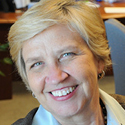 |
|
| Linda McCauley |
|
Last month, Linda McCauley, dean of the Nell Hodgson Woodruff School of Nursing, joined other members of the Deans' Nursing Policy Coalition to brief the bipartisan House Nursing Caucus on the importance of advanced practice nursing to providing high-quality, cost-efficient care in the wake of the Supreme Court's decision in favor of the Affordable Care Act. Read more.
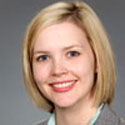 |
|
| Faye Routledge |
|
Faye Routledge (nursing faculty) has received the 2012 Woodruff Scholar Early Independence Award, which comes with $50,000 to support her research in cardiovascular health and chronic diseases.
Deaths
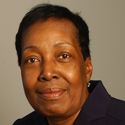 |
|
| Maggie Gilead |
|
Maggie Gilead, nursing school alumna and faculty member since 1974, died July 16. She once said, "People always think I'm the first African American faculty member in the school, but actually I'm just the one who stayed." Read more.
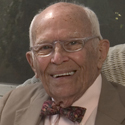 |
|
| Elbert Tuttle |
|
Elbert Tuttle, a nephrologist who served on the medical faculty from 1956 to 1992, died March 18. He was the first director of renal medicine in the Department of Medicine. Read more.
Events
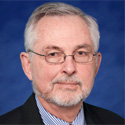 |
|
| Glenn Steele |
|
Sept. 5: Healthcare Innovation Symposium III: New Models of Delivery & Payment. Presentation by Glenn Steele (president and CEO, Geisinger Health System), followed by a panel discussion and reception, 4:30-7:00 p.m., Emory University Hospital Auditorium. More info on the program, speaker bios, and online registration. This is the third in a quarterly symposia series entitled "U.S. Healthcare: What's Broken & How to Fix It."
Sept. 22: American Heart Association Metro Atlanta Heart Walk. More info.
Oct. 13: Winship 5K Win the Fight Walk/Run to support cancer research and care. Register online.
|
